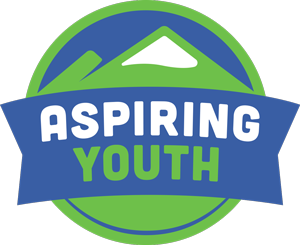Tag: autism
Making A Difference For Young Adults With Autism
This story, written by Abbie Richert, was originally published in Plateau Living (April 2017) with a similar article in Madison Park Living (April 2017). You can find local copies in Sammamish or Madison Valley (Seattle). It is reprinted here with permission from the author. For young adults with autism, visibility and acceptance in the community are cornerstones of their personal and professional
How to Support a “Scattered” Child
“How can my child be so smart, yet fail every subject?” This is a common question from parents of bright children. The answer: your child is smart, but scattered. Peg Dawson, international author and presenter on executive functioning, described the impact of executive functioning in her presentation to special education staff in the Federal Way Public Schools. Executive functions are
Through our eyes: What it’s like
The “Through our eyes” series invites you to hear and learn from the perspectives of young adults in our community living with autism, Asperger’s, ADHD, learning disabilities or other social challenges. Before we begin, I would like to clarify that I only speak on behalf of myself and no one else on the autism spectrum. My experiences with Asperger’s syndrome are
Through our eyes: School
The “Through our eyes” series invites you to hear and learn from the perspectives of young adults in our community living with autism, Asperger’s, ADHD, learning disabilities or other social challenges. Asperger’s (along with other autism spectrum disorders) sometimes come in a nice little package along with ADD/HD, depression and social anxiety. And, naturally, these did impact my school life. I
Through our eyes: Discussing autism
The “Through our eyes” series invites you to hear and learn from the perspectives of young adults in our community living with autism, Asperger’s, ADHD, learning disabilities or other social challenges. I usually never tell people that I’m on the autism spectrum (specifically that I have Asperger’s Syndrome) unless it’s relevant to the situation. For instance, when someone makes a passing
The United States of Autism
Understanding autism throughout the country It’s no secret that autism spectrum disorder is increasing in prevalence, especially in the United States. There is no race, region, or social class exempt from the impacts of autism. This is clearly demonstrated in the 2013 documentary The United States of Autism, whose host and director, Richard Everts, travels across the country and interviews
Developmental vs. Chronological Age: What’s the difference?
A psychologist at my first internship rotation hammered into all the students who would cross her path the concepts of developmental age and chronological age. She emphasized how important they would be in all of our future careers—she was right. But how are they important to parents? Chronological age is pretty straightforward: it is simply how physically old your child
Transitions: Optimizing life as an adult with autism
A talk with Dr. Gary Stobbe As individuals with autism age into adulthood, many new barriers emerge than interfere with success, happiness, and accessing the community as an adult. To better understand these barriers and to better identify opportunities to promote successful transition to adulthood, Dr. Stobbe will review what is currently known about the autism trajectory, co-occuring medical and
Can my teen attend college?
Thinking about college can be an intimidating challenge for teens on the autism spectrum, but maybe even more so for their parents. How will children manage without their special education case managers? How will they do without their social-emotional or behavioral supports in place? Might they flounder in the seas of large lecture classrooms? And of course those executive functioning skills: attention, organization, planning…
Social Skills: Beyond being nice
We’ve all seen it. The kid who walks up to you, stares you right in the eyes, gives you a big cheesy smile and says “Hello!” while awkwardly shaking your hand. We train our kids to do this. I’ve worked with people with autism spectrum disorder (ASD) in various capacities and hate to admit that I’m very guilty of this.


Recent Comments